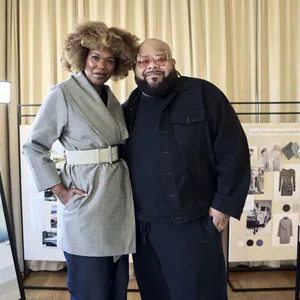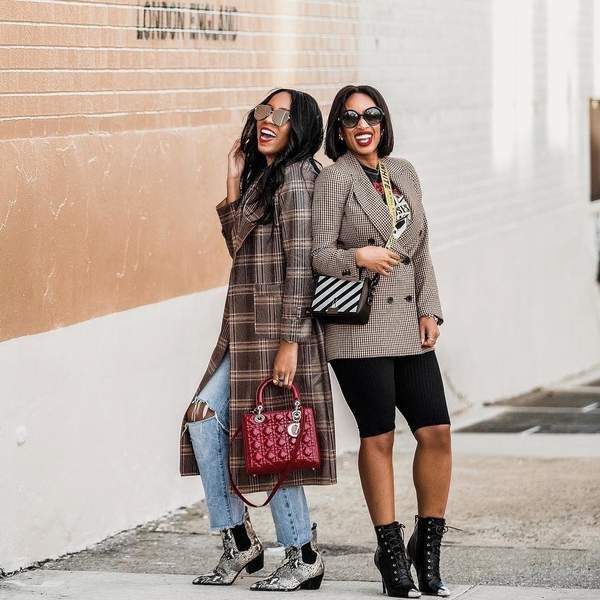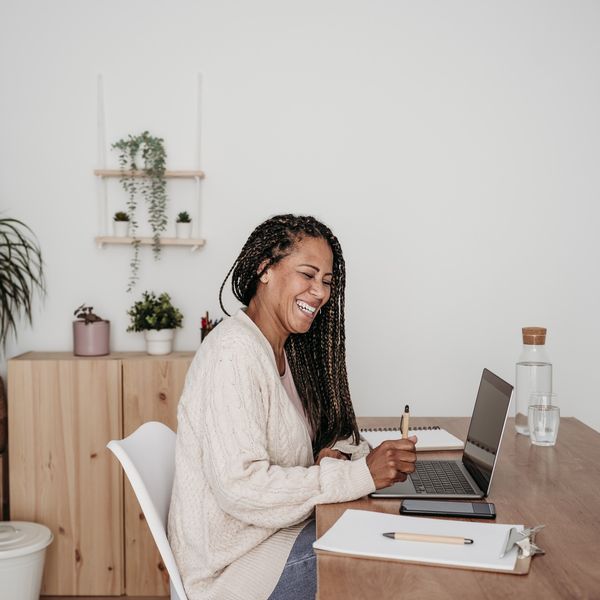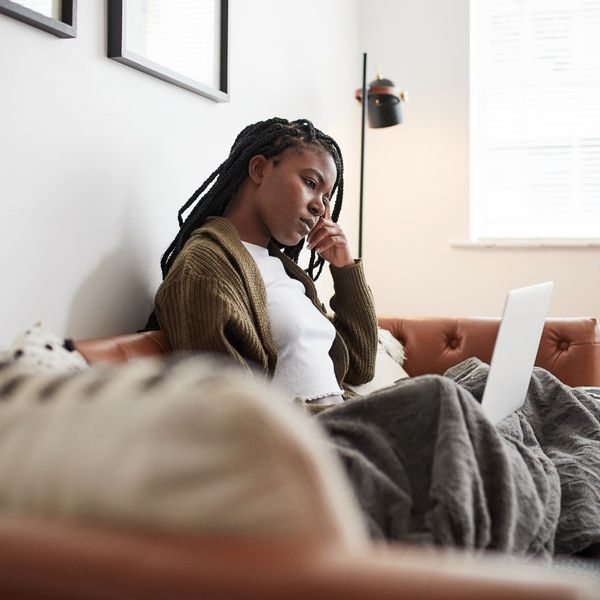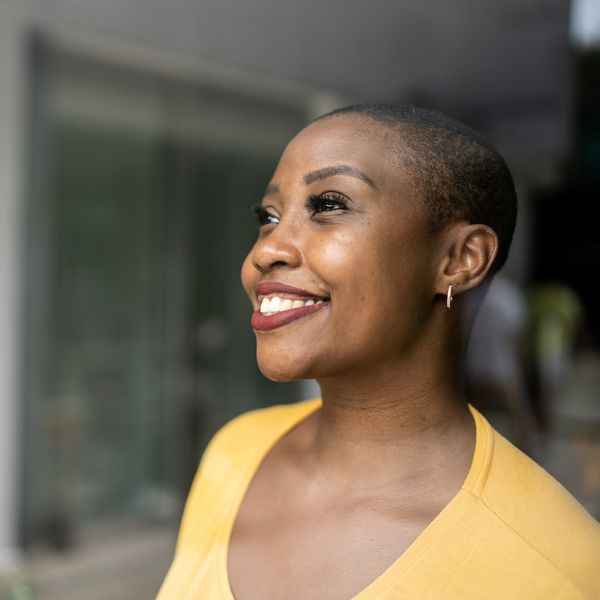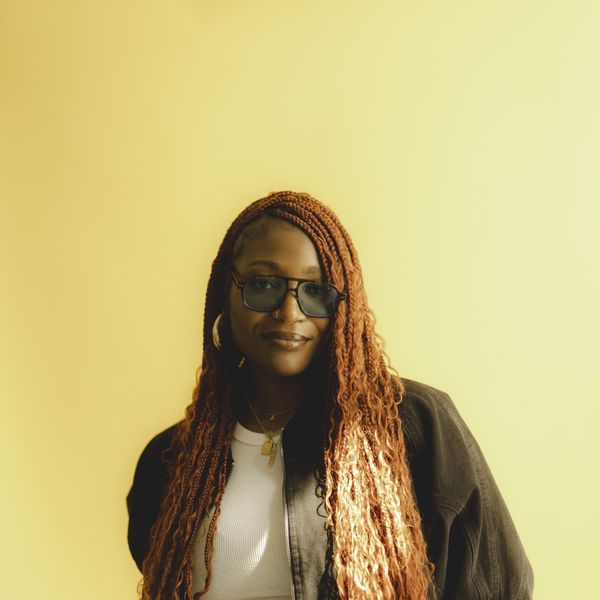"Collaboration over competition" is the motto.
Ain't nobody got time to be competing with other women especially when they look like you. As women, we are taught to compete with each other and I will admit that I used to think competition was healthy. During my previous trips to New York Fashion Week, I would fall victim to comparing myself to other influencers. And you know where that got me? Nowhere. It took some time and soul-searching but I learned to find the charm in contrast.
There's a special place for influencers of color because we create amazing and endless content. The only problem is that we tend to assume that there can only be one of us at the table. But that's far from the truth and major influencers like Tania Cascilla and Shay Ingleton-Smith are working hard to help other influencers realize their worth by giving them the tools not only to sit at the table but to build their own damn tables.
According to a CMO report, statistics showed that social media advertising budgets are predicted to almost double by 2023. The data also shows that businesses earn at least $6.50 for each dollar that they have spent on influencers. And while brands like to say they have diversity, that's not always the case.
It is taking some time for them to realize that diversity is what you have and inclusivity is what you do.
Through transparency and honesty, Tania and Shay created, The Glow Up, a galvanized group for melanin influencers to speak freely about rates, negotiations, strategies and even how much they are getting paid. Being an influencer is a full-time job and it definitely has its peaks and valleys. In this exclusive, Tania and Shay chat with us about the recipe for The Glow Up, the power in sharing the wealth and advice they have for aspiring influencers.
One of the girl bosses, Coco Bassey said, “The point of The Glow Up has never been to exclude other women. It's about teaching each other how to create a seat at the table.” Why do you think it’s so important to share the wealth in our culture, specifically as black women?
Tania: I think it's important for us share the wealth in our culture for numerous reasons. One being there is strength in numbers...when more of us know our worth, we all win. That's why in our group, we make it a point to discuss things such as rates, which people are normally hush, hush about.
Shay: As women, a lot of us are conditioned to look at each other as competition. After seeing first-hand how much Tania and I benefited from being open and honest and sharing with each other, we realized very quickly that hoarding information and operating in silos helps no one. We felt very strongly that we had to share our knowledge with other girls like us so that they could benefit in the same ways that we have benefited."
And now we have a network of dozens of women from around the world that we can ask for help, without any strings attached. It is a huge source of confidence for all of us.
Tell us how you came to create The Glow Up and why you chose the name.
Tania: Shay and I were in a Facebook group with predominantly Caucasian women and while it was informative and very insightful, there weren't many women that looked like us. We noticed how candid and transparent the women were with each other and thought to ourselves we need a group for women of color. The difference with our group is it's more of an actual sisterhood, friendships and bonds have been formed with members across the world.
"It was important for us to bring black women together in a positive space."
Shay: We would talk about all things blogger-related and the conversations sort of started to take on a life of their own, so we decided to give the "group text" a new home that was more formal, organized and could accommodate new members. We thought about several names for it, but as soon as we decided on the name "The Glow Up," we knew it was perfect.
In Forbes, you share tips on how to help fellow influencers break the mold and command what they are worth. Can you share a story where you had to know your worth and add tax?
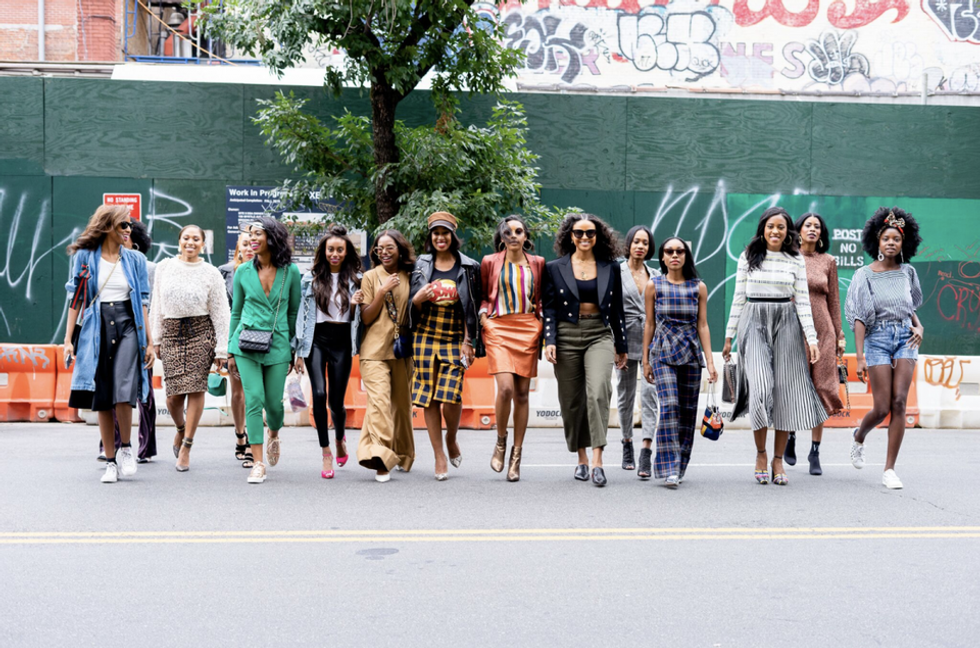
Forbes
Tania: This happens far too often. There isn't a day that goes by that I don't get low-balled. But knowing my worth and not settling for less gives me the confidence I need to handle these situations. I've had offers increase by more than 50% by simply breaking down why I deserve to be paid my rate and dropping my receipts so to speak. I think my work speaks for itself.
"I honestly believe when you invest in your brand, you reap the benefits of those efforts."
Shay: I sent in my rates plus an additional fee for exclusivity. Shortly after I sent in my rates, the brand came back to me saying that my rates were much higher than my counterparts and they asked me to justify why I had asked for so much. So I sent them screenshots detailing the income that I had brought in from similar brand deals over the last month and explained that I would need at least that per month in order to move forward with this opportunity. I went in with confidence and in the end they agreed to my rates.
Why do you think we shy away from talking about how much we're getting paid, rates, and negotiations? What strategies do you have for glowing up?
Tania: I think there are various reasons. Sometimes people are afraid to say how much they are making because they think someone is getting more and they are ashamed, while others fear they may lose their spot. But the truth is knowledge is power, by sharing that information you may realize you've been shortchanging yourself and could actually be charging more. I feel like what's meant for me is for me period! So I never have any issues sharing intel that could possibly help someone for the better.
Shay: People don't charge more and negotiate more because a lot of times they don't even know that it's a possibility. The other part (for me anyway), is a bit of impostor syndrome. I used to get scared that the client would say no and take their business elsewhere if I tried to negotiate and ask for more. But almost every time that I go in confidently with a request for more, the energy in our correspondence changes. There's a newfound respect from the person at the other end of the negotiation.
If you had to choose a rose and thorn of being an influencer, what would it be?
Tania: Rose would be definitely being able to do something I love every day and being my own boss. The thorn would be the preconceived notions people have about me because I'm an influencer.
"This is still a new profession, a lot of people don't realize this is work for me, it's not all about taking pretty pics...we grind!"
Shay: Rose -- connecting with women around the world and being given the opportunity to tell a brand's story from your own unique perspective. The thorn would be that the industry can take a toll on you mentally. Constantly creating content can be mentally taxing, but the group has been a great outlet. I always know that I am not alone.
What advice do you have for aspiring influencers?
Tania: Invest in your brand!! Do your research, make sure the quality of your work is up to par. Collaborate with others! Shay and I started our journey at the same time, being able to bounce ideas off of her and confide in her was instrumental. Most importantly be authentic and stay true to yourself, don't get caught up in what everyone else is doing and never compare yourself to others. You're you and that's more than enough. Always remember Rome wasn't built in a day, your time will come!
Shay: Be yourself, focus on quality over quantity and invest in yourself and your content so that you can really stand out from the competition.


